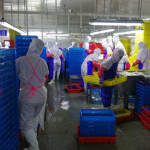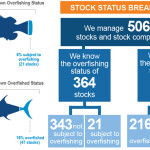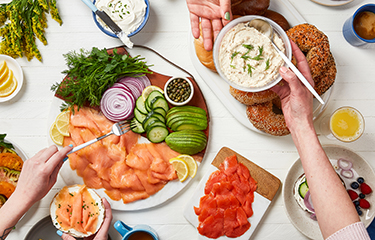SeafoodSource is closely following the sustainable seafood movement and is compiling a regular round-up of sector updates pertaining to sustainability initiatives.
-New York City, New York, U.S.A.-based Acme Smoked Fish has sent out a call for proposals for its second annual Seafood Industry Climate Awards.
The awards have increased from last year’s USD 40,000 (EUR 37,854) to USD 70,000 (EUR 66,244) this year for each winner. The grants will go to three companies and projects based in the U.S. or Canada focusing on decreasing carbon emissions and increasing diversity in the seafood industry.
“What we found last year when we were doing outreach around the awards was a lot of people think about climate change and issues related to it, and a lot of people think about underrepresented groups; [however,] they don't think about them together. That meant we had a lot of educating to do,” Acme Smoked Fish Chief People and Sustainability Officer Rob Snyder told SeafoodSource. “I think having a round of winners has helped people imagine how to participate better in this award now.”
The application deadline is 2 November, and winners will be announced on 6 December.
“You can be an entrepreneur to apply, you can be a researcher, you can be a nonprofit. We are interested in taking a holistic look at how we solve these problems in the seafood industry,” Snyder said. “We did get some private sector applications last year, but I’d love to see more this year.”
Acme Smoked Fish also announced a branding refresh on 2 October, as a part of its mission to expand smoked fish efforts and increase education about smoked fish consumption.
The rebranding includes a new Acme Smoked Fish logo, visual brand, and website update with a focus on education.
“It’s a labor of love,” Acme Smoked Fish CEO Adam Caslow told SeafoodSource. “What sustainability means to us as a company beyond just seafood was part of the brand refreshment. We very much tried to tell that [visually] through the website. We've seen this past year with seafood consumption down, a lot of consumer insights that we've been gathering still yield the same question; beyond price, there's an education component about how we can incorporate seafood into people's daily lives and diets.”
-Tilapia producer Regal Springs announced on 16 October that it is now a member of the Aquaculture Working Group on Environmental Footprint, which is led by the Sustainable Trade Initiative (IDH).
“Regal Springs has been at the forefront of sustainability practice since its inception 35 years ago, with sustainability core to our DNA,” Regal Springs CEO Alois Hofbauer said in a LinkedIn post. “The move to shore up understanding of our carbon footprint and any improvement is an obvious and natural step, and we look forward to working with the Aquaculture Working Group. We have already embarked upon the journey and taken ... some of the tools that will enable us to set targets in the future."
The working group aims to apply consistent practices and methodologies for organizations to calculate their aquaculture footprints.
-Scientific research company and supplier of aquaculture ropes and nets Garware Technical Fibres, headquartered in Pune, India, announced its roadmap to becoming carbon-neutral.
Forty percent of the company’s operations are derived from wind power currently, and it is projected that 65 percent will come from a renewable energy source in the near future.
“Our actions, products, and commitments demonstrate a solid focus towards sustainability and the reduction of greenhouse gas emissions. By continuing to implement these practices, we contribute to mitigating climate change and promoting a more sustainable future,” Garware Technical Fibres Americas Manager Gopakumar Menon said in a release.
The company also recently acquired a 26 percent stake in TP Bhaskar Renewables (TPBRL) to allow Garware to generate solar energy.
“Green energy is clean energy; it comes from an inexhaustible energy source, it does not generate polluting emissions or greenhouse gases, it promotes energy independence and generation for self-consumption, it is sustainable, and it is implemented to diversify energy sources,” Menon said.
Photo courtesy of Acme Smoked Fish







